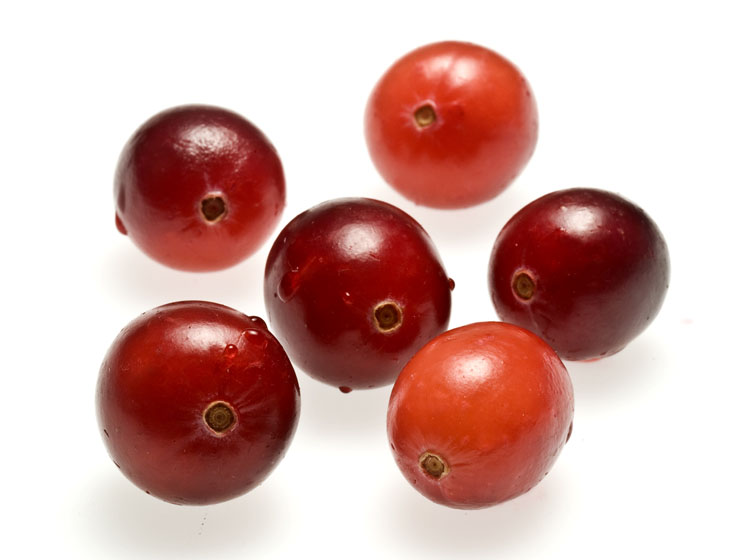Affecting more than 150 million people annually, UTIs are among the most frequent infections in clinical practice worldwide.1 They not only impose clinical and economic burdens on healthcare systems, they also negatively influence the quality of life of many people.
Recurrent lower urinary tract infections (R-UTIs) are common after catheterisation in surgical patients, but they also occur — in both men and women — in non-surgical patients. Several studies have reported the beneficial role of cranberry products for urinary tract well-being and their ability to control the frequencies of R-UTI episodes.
The complex mixture of proanthocyanidins (PACs), flavonols and phenolicacids contained in cranberry extracts seems to impede biofilm formation and infection.
Like many other natural compounds, cranberry extracts often suffer from poor bioavailability and bioabsorption. As such, Indena has developed a new health food ingredient based on its proprietary phytosome formulation technology, which is able to enhance and optimise the delivery of the company’s cranberry extract (Anthocran Phytosome) to where its effects are needed.
In addition to its improved ability to reach specific tissues, the 100% food grade Anthocran Phytosome formulation boasts a unique phytochemical property, which makes it the highest quality cranberry extract on the market; standardised to contain 6.0–9.0% PACs (according to the DMAC UV-visible spectrophotometric method), it contains the full polyphenol profile of natural cranberry, including flavonols, anthocyanins and phenolic acids.
A pharmacokinetic study using HPLC-MS/MS has recently been done to profile the cranberry compounds and metabolites found in human urine after supplementation with a highly standardised cranberry extract (Anthocran Phytosome).2
Two different strategies were adopted to analyse the data; using both a targeted and untargeted approach, the authors identified 42 analytes, including cranberry components, known and previously unreported metabolites, as well as eight valerolactones/valeric acid derivatives whose presence in urine after cranberry consumption had never been described before.

Moreover, the ex vivo study showed that urine fractions rich in these metabolites were the most active against the frequently detected pathogen, Candida albicans, which often occurs in up to 10% of positive urine cultures in patients in hospitals, intensive care units and tertiary care facilities.
To support these data from a clinical point of view, a pilot registry study recently investigated the effects of oral supplementation with Anthocran Phytosome on urinary tract health.3 The trial included 64 otherwise healthy subjects who underwent a surgical procedure and required post-surgical urinary catheterisation.
The subjects were randomly assigned into four groups: 24 were given the standardised cranberry extract at a dose of either 120 or 240 mg/day; a control group of 18 people received standard management treatment; and 22 received nitrofurantoin for 4 weeks to relieve any R-UTIs.
At the end of the trial, the subjects supplemented with the standardised cranberry extract reported more favourable outcomes in terms of managing UTI symptoms such as urinary frequency, urgency, dysuria and nocturia — as assessed on the visual analogue scale — compared with those in the standard management or nitrofurantoin groups.
No blood or traces of bacterial infection were detected in the urine of the subjects treated with the supplement compared with the controls (p<0.05). The cranberry extract also performed better than standard management regarding UTI recurrence, with none of the subjects in this group reporting a R-UTI in the 3 months following the study (p<0.05).
The extract showed an optimal safety profile with no significant adverse events and no drop-outs in the supplement group. In conclusion, this study shows that cranberry extract (Anthocran formulated as phytosome) is a valid, well-tolerated dietary supplement for subjects in whom post-operative, post-catheter R-UTIs may occur.
References
- R. Öztürk and A. Murt, “Epidemiology of Urological Infections: A Global Burden,” World J. Urol. 38(11), 2669–2679 (2020).
- G. Baron, et al., “Profiling Vaccinium macrocarpon Components and Metabolites in Human Urine and the Urine Ex Vivo Effect on Candida albicans Adhesion and Biofilm Formation,” Biochemical Pharmacology 173, 113726 (2020).
- R. Cotellese, et al., “Anthocran Phytosome: Prevention of Recurring Urinary Infections and Symptoms after Catheterization,” J. Diet. Supp. (2021): online ahead of print.




